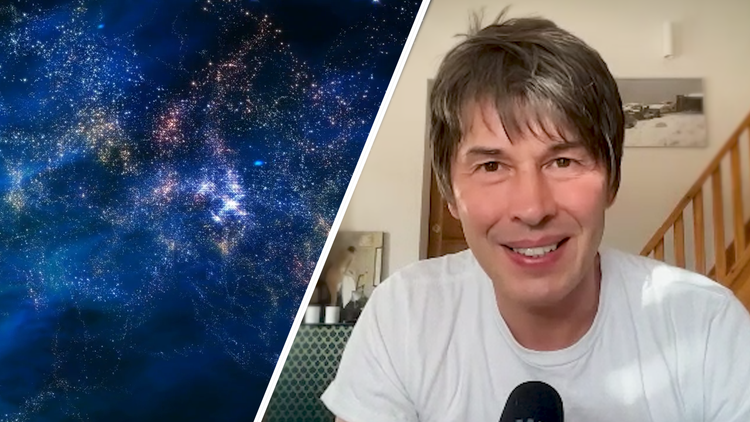Four questions about AI that need answering now, according to leading physicist Brian Cox
If humans don’t manage to find a solution to four key questions involving artificial intelligence now “deeper challenges” could be faced down the road, British physicist Professor Brian Cox believes.
The warning echoes that of dozens of AI industry leaders, academics and celebrities who recently called for mitigation measures to be enacted to reduce the risk of global annihilation due to AI systems.
Cox told 9news.com.au there are both immediate and long-term questions about AI that humanity needs to start answering as soon as possible – but conceded an extinction-level event is not likely.

“I think there are big questions, really practical questions, now about AI systems in use,” he said.
“The immediate problem is when you give control to an AI system, as we do now, then who decides how those decisions are made?
“Is it just left to this AI thing, or does society have some kind of democratic control?”

Cox went on to cite a fictitious example of what would happen should an automated driving system be put in a situation where the driver and another person, are about to be injured
“This is an unlikely scenario,” he admitted, before continuing.
“But is it going to injure a pedestrian, injure the driver, injure a child, does it say I don’t want to injure a child, rather than an adult.
“Those questions need addressing.”

The trickier questions, Cox said, arise over longer-term fears the systems could become as intelligent as humans one day.
“We don’t have those at the moment,” he said, adding those systems are called Artificial General Intelligence (AGI).
“I’m not an expert, but there are varying estimates about time scales, I mean it’s not actually completely accepted we will ever be able to build something of that intelligence; it’s in the unknown box, but it might happen quite soon”.
Cox said a raft of questions would be raised should AGI systems ever “out-evolve” humans and claim the same rights.
“Ultimately, this all comes down to thinking carefully now about how we regulate these systems; who controls them, who programs them, how much autonomy do they have, how do we deal with them legally…
“Those are real questions and if we answer them now we will be better prepared if we run into deeper challenges in the future.”
The universal question Cox would have answered tomorrow
The comment comes as the renowned professor of particle physics prepares to make his return to Australia for the world premiere of his live stage show Symphonic Horizons.
Cox and the Sydney Symphony Orchestra will join forces at the Sydney Opera House for four shows to answer fundamental questions about human existence and space.
He said if he could have one question answered about the universe tomorrow it would be “are we alone”.

“There’s a lot of them (questions), but one of the ones I think we have a chance in answering is ‘are we alone’, or let’s put it another way, how far we have to go to discover life beyond Earth?”.
Cox explained the mystery of consciousness, questions of where we sit in the universe, is one of the aspects that fascinates him most about the unexplored frontier.
This will form a core aspect of Symphonic Horizons.
“I really think that one of the fundamental questions about the universe is, why is it able to support structures, living things – things like you and me – that can understand the universe,” he said.
“And why can the universe understand itself, and how does that happen?
“That for me is as fundamental as asking questions about the nature of space and time, and the origins of the universe itself.
“We will all come out (of the shows) with a different view of our place in the universe, but I don’t know what that view will be until we have done it.”








